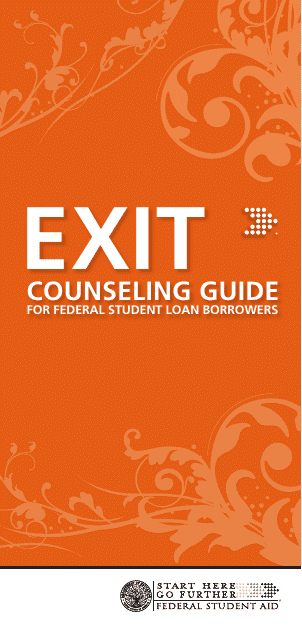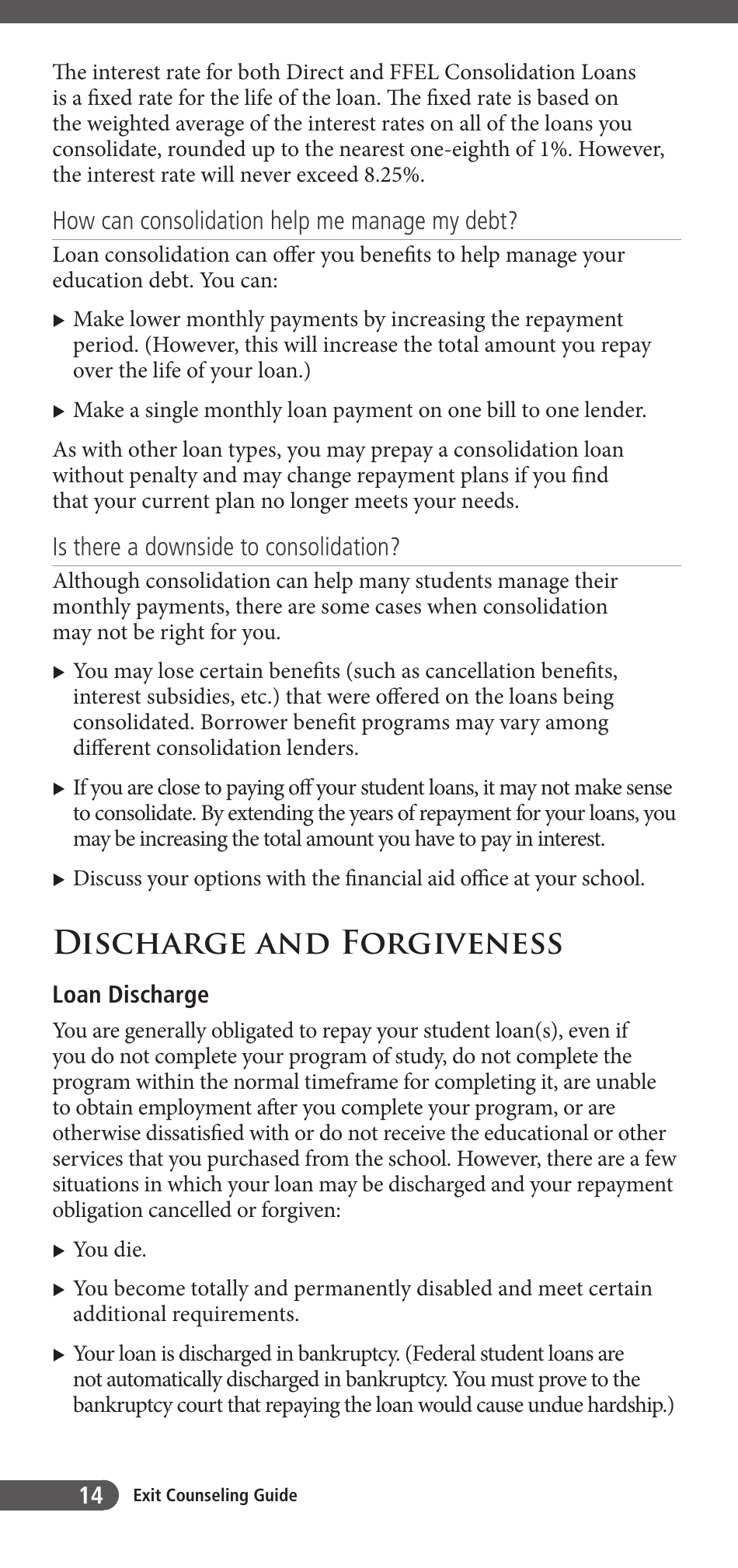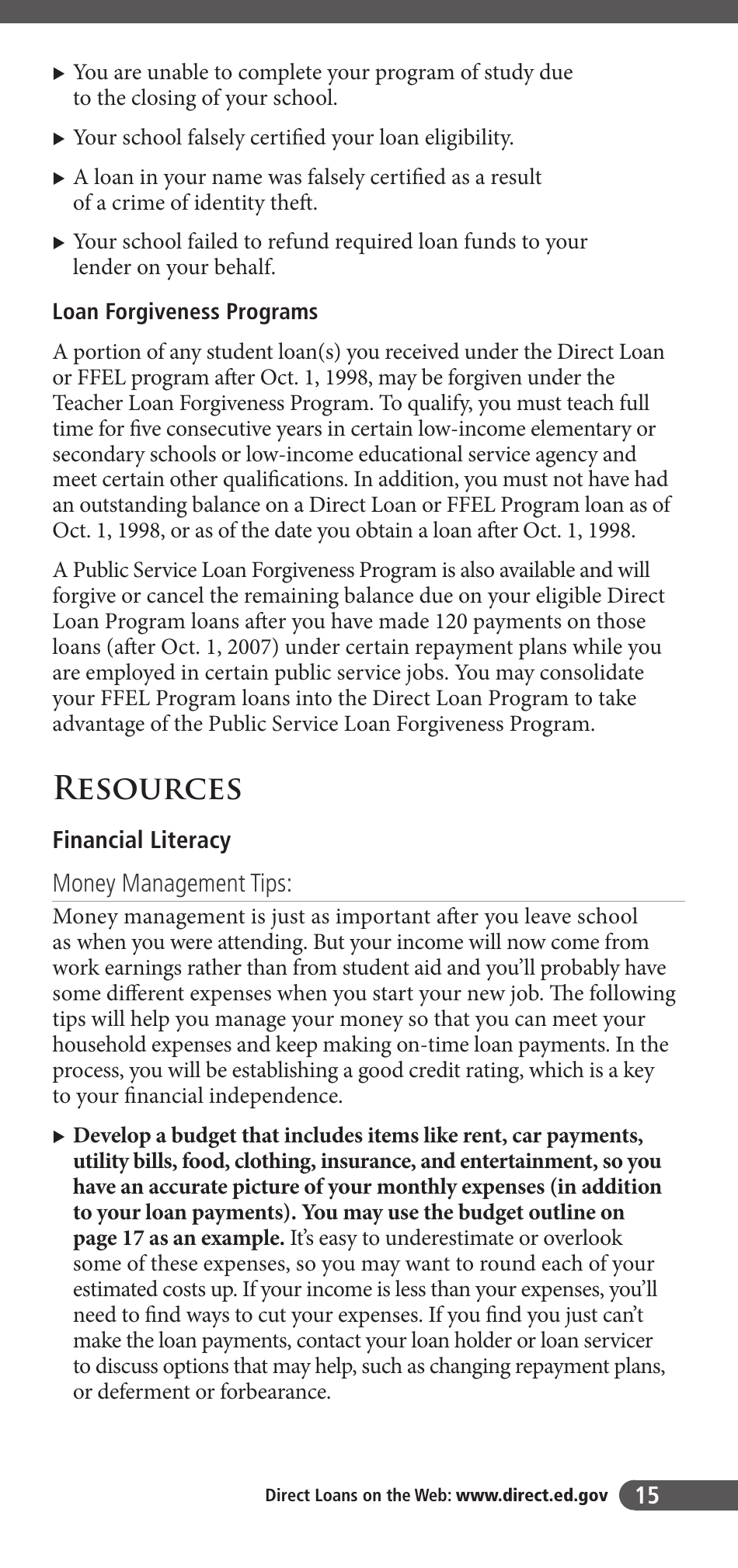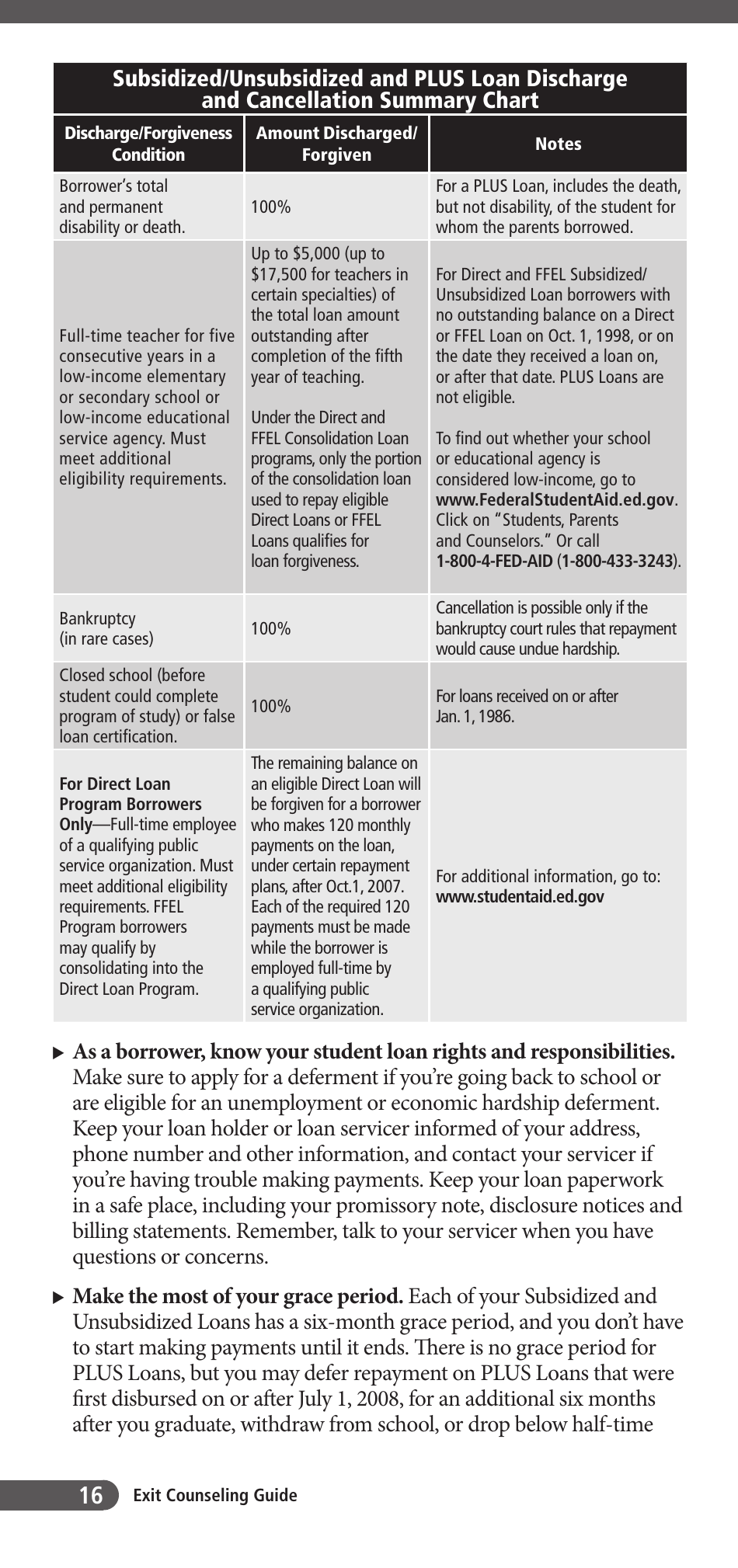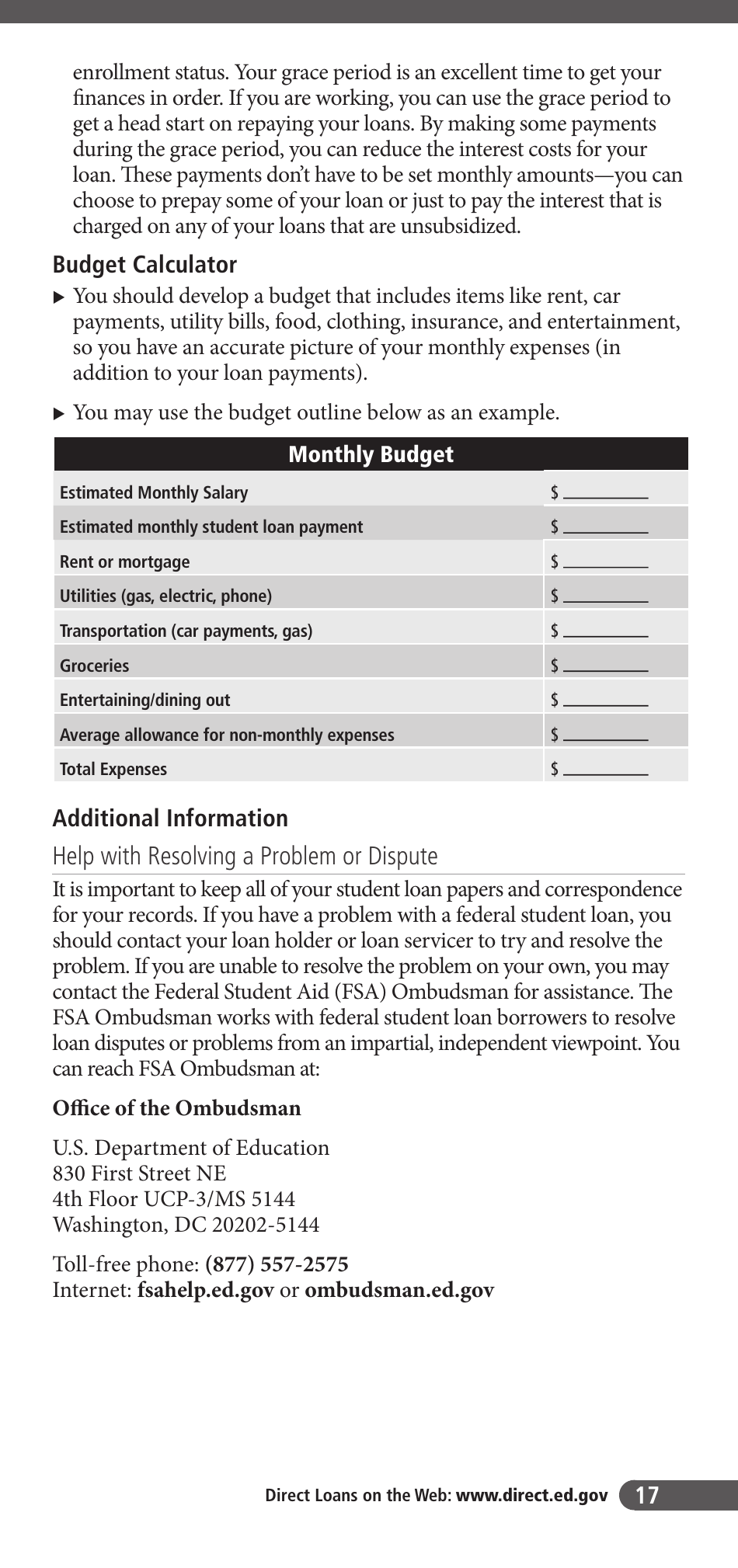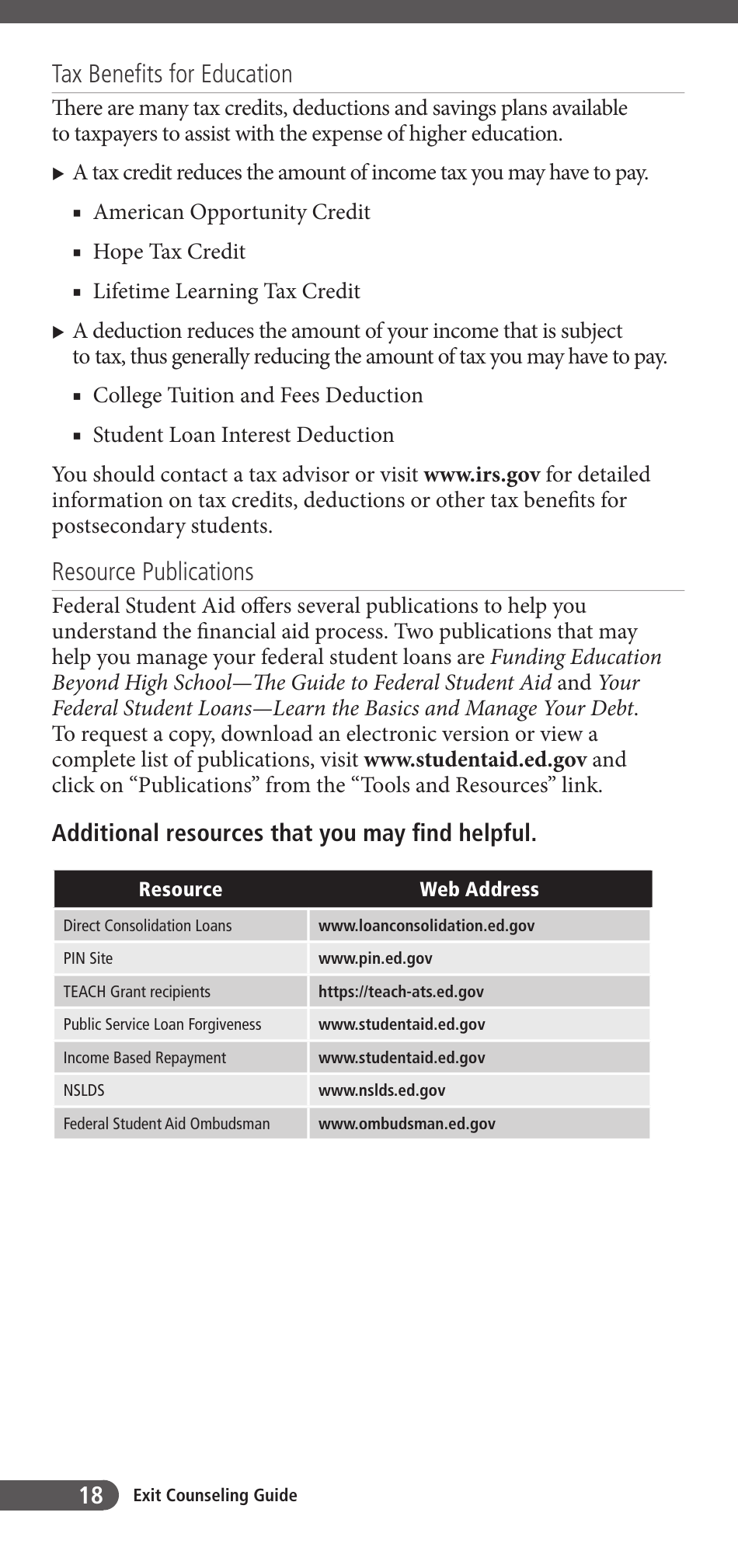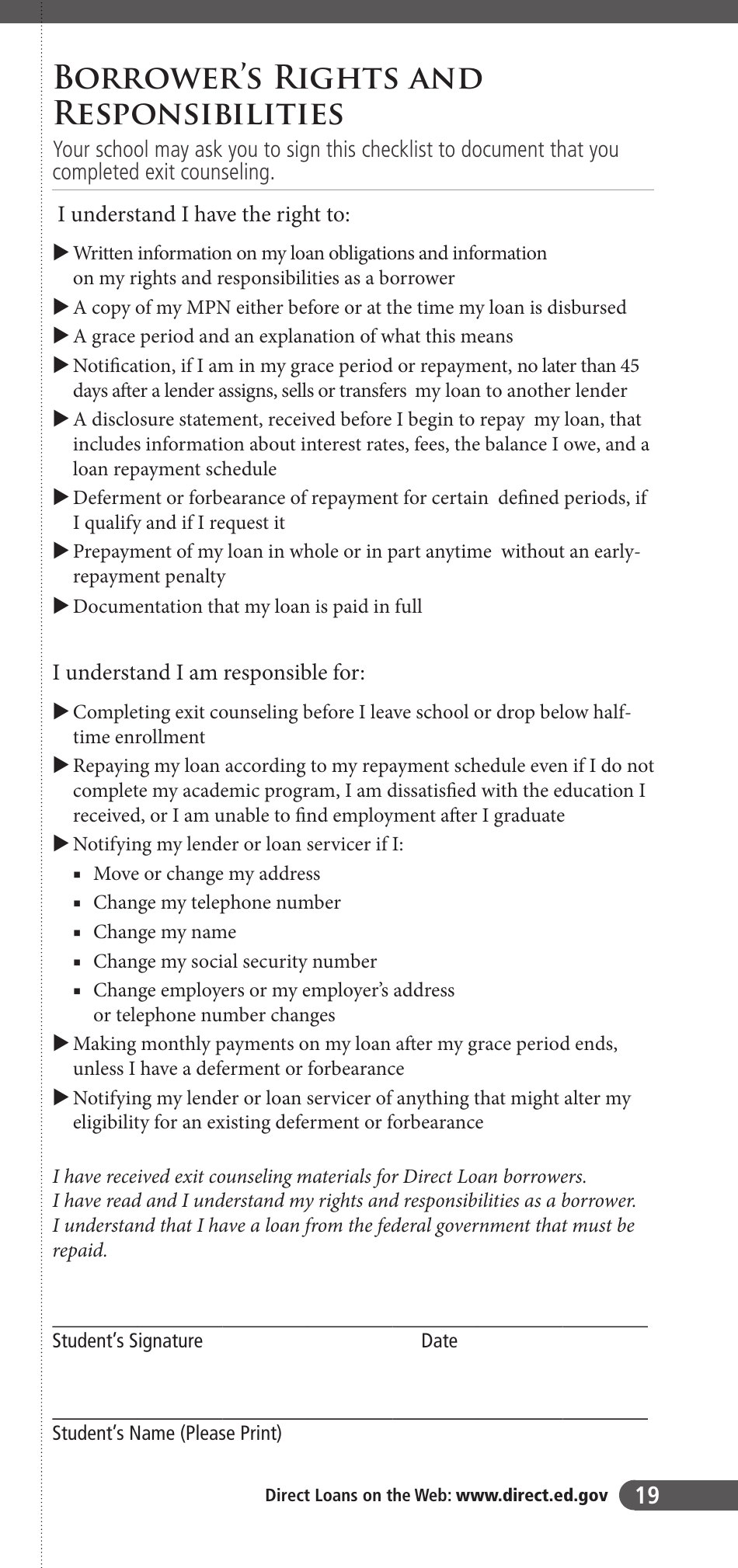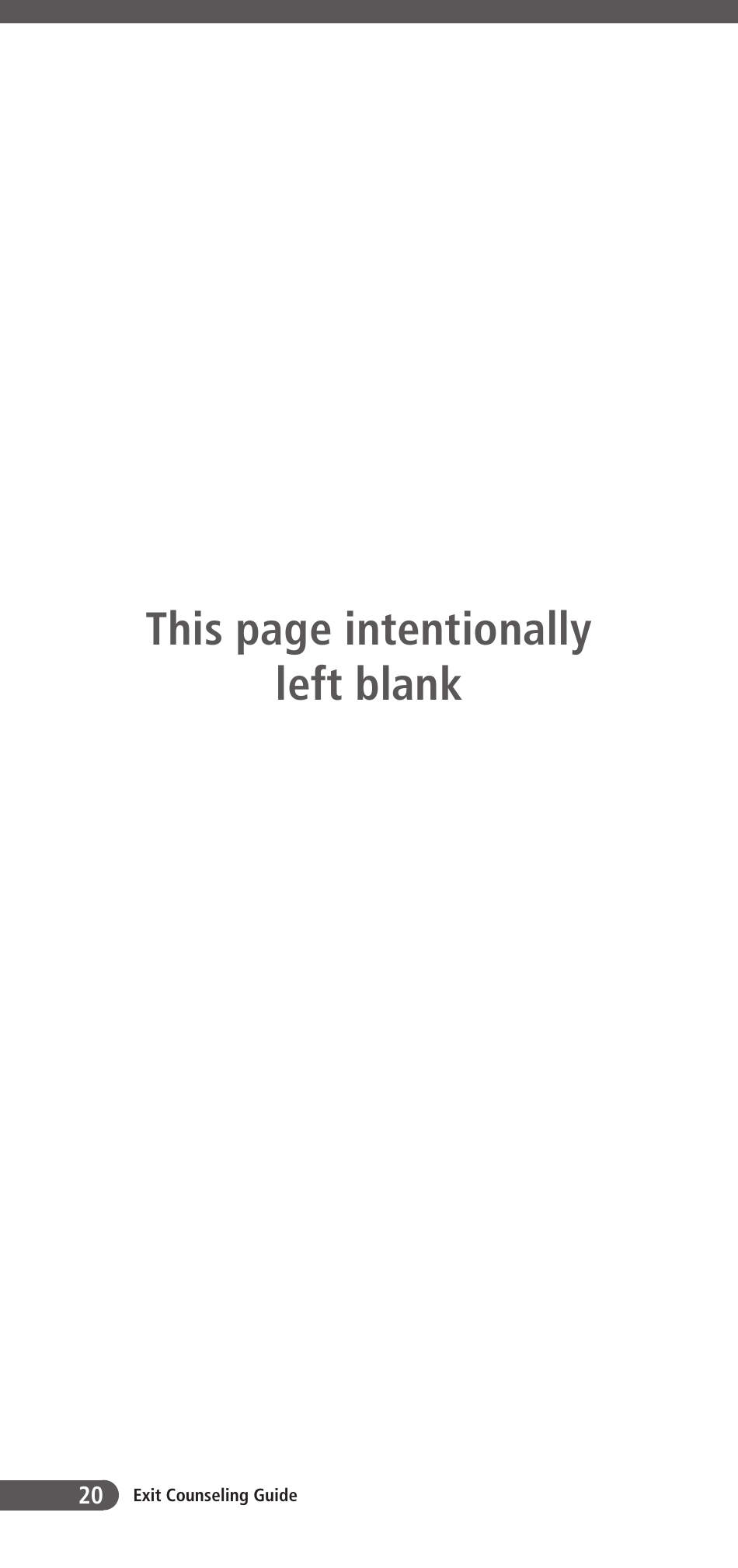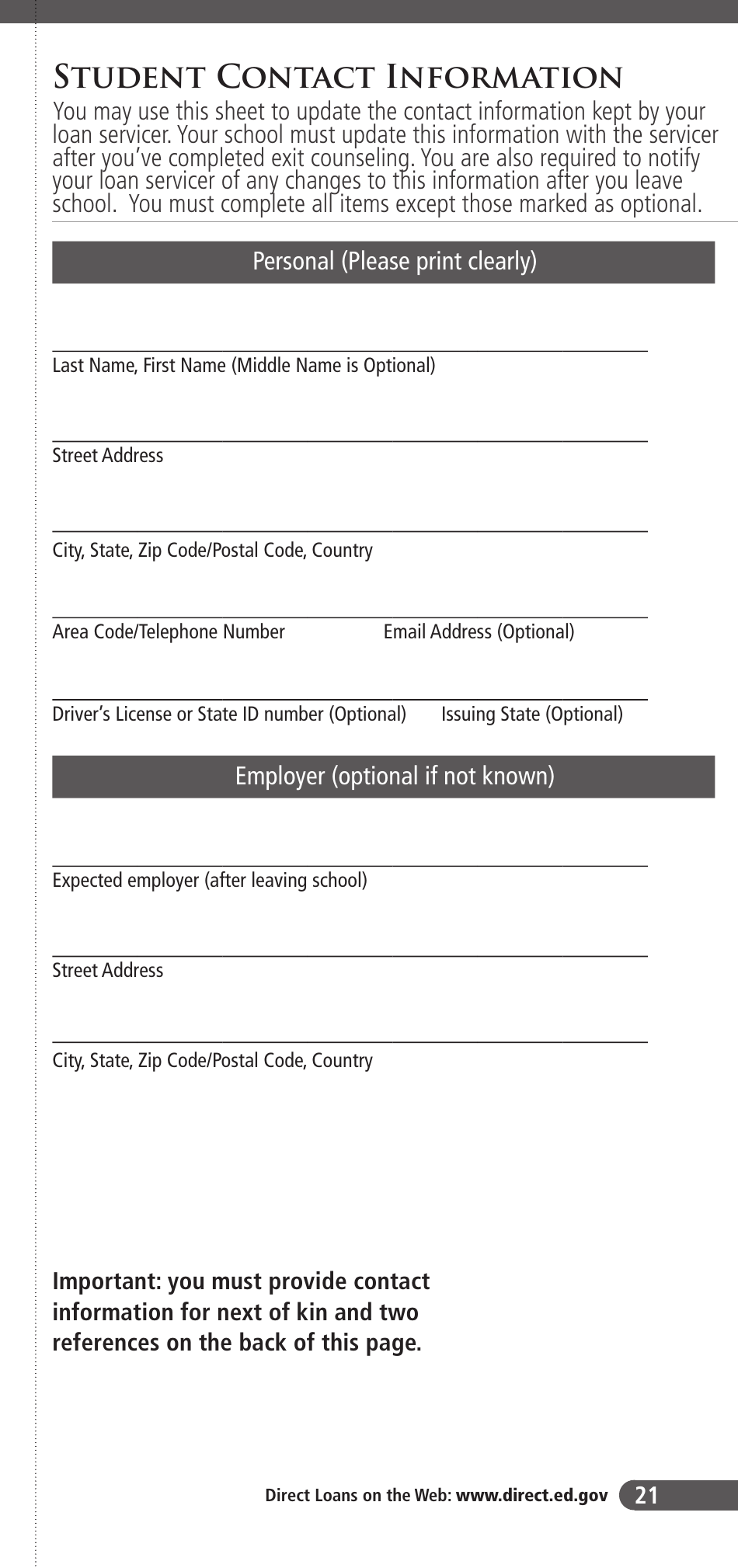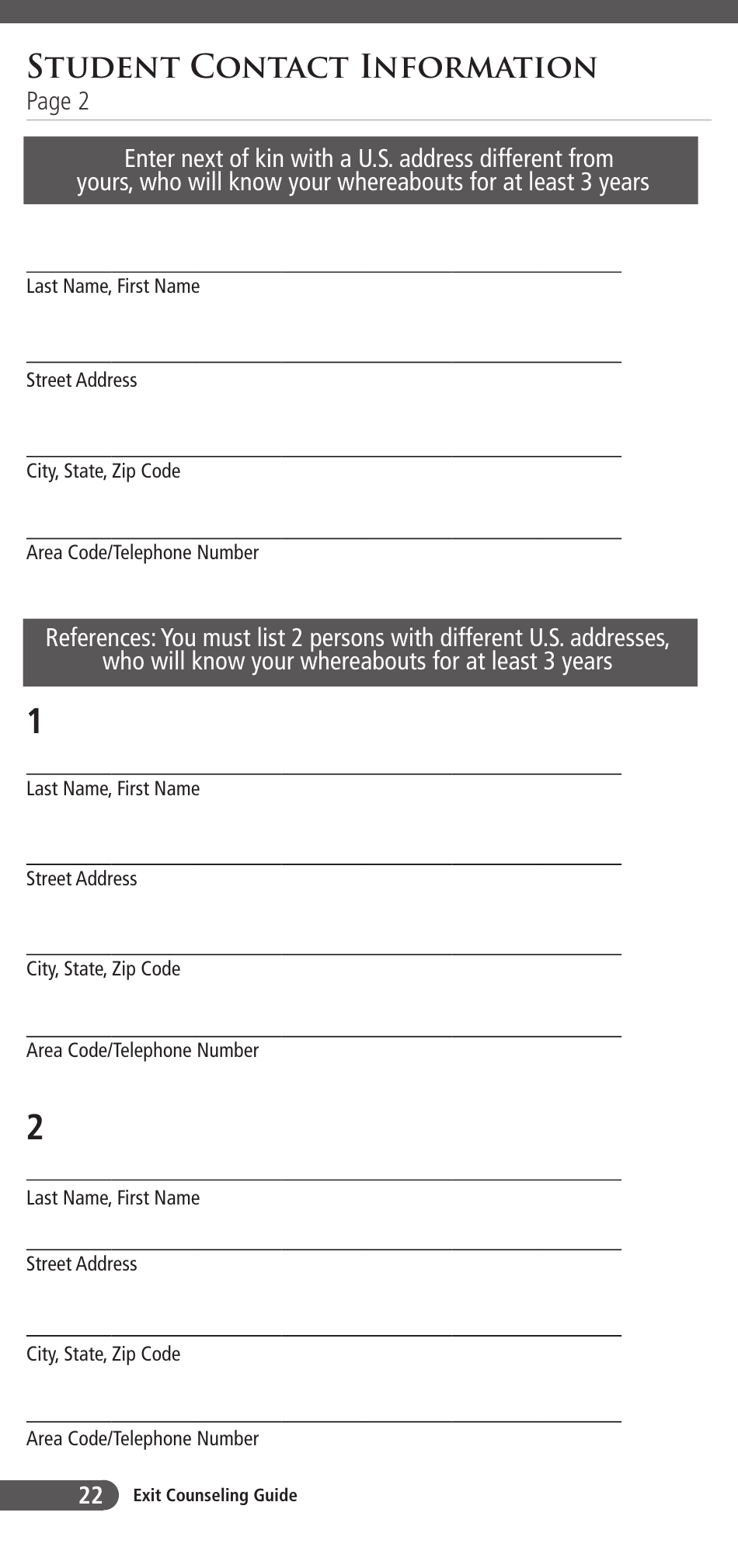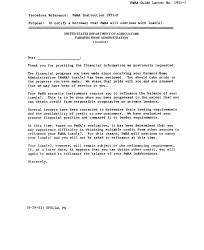Exit Counseling Guide for Federal Student Loan Borrowers
Exit Counseling Guide for Federal Student Loan Borrowers is a 28-page legal document that was released by the U.S. Department of Education - Federal Student Aid on December 2, 2010 and used nation-wide.
FAQ
Q: When is exit counseling required?
A: Exit counseling is required for borrowers who are graduating, leaving school, or dropping below half-time enrollment.
Q: What information is covered in exit counseling?
A: Exit counseling covers topics such as repayment options, loan consolidation, grace periods, loan forgiveness, and the consequences of default.
Q: Do I have to complete exit counseling for each of my federal student loans?
A: No, you only need to complete exit counseling once, even if you have multiple federal student loans.
Q: What happens if I don't complete exit counseling?
A: If you fail to complete exit counseling, your school may hold your diploma or transcripts until you fulfill this requirement.
Q: Can I change my repayment plan after completing exit counseling?
A: Yes, you can change your repayment plan at any time by contacting your loan servicer.
Q: Are there any resources available to help me manage my student loan debt after exit counseling?
A: Yes, the Department of Education provides resources such as loan calculators, budgeting tools, and information on loan forgiveness programs.
Q: What happens if I default on my federal student loans?
A: Defaulting on your federal student loans can have serious consequences, including damaged credit, wage garnishment, and loss of eligibility for future federal student aid.
Q: Can I pay off my federal student loans early?
A: Yes, you can pay off your federal student loans early without any prepayment penalties.
Form Details:
- The latest edition currently provided by the U.S. Department of Education - Federal Student Aid;
- Ready to use and print;
- Easy to customize;
- Compatible with most PDF-viewing applications;
- Fill out the form in our online filing application.
Download a printable version of the form by clicking the link below or browse more legal forms and templates provided by the issuing department.
